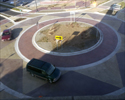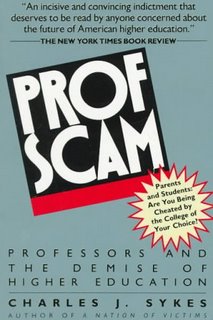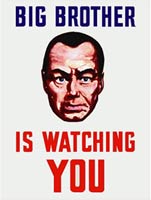http://www.democracy-project.com/archives/002959.html
There’s, also, little reason to doubt that much of the reporting we’re getting, which is feeding despair among many Americans, is unreliable.
This is scarey. Read it all.
Important stuff you won't get from the liberal media! We do the surfing so you can be informed AND have a life!
Tuesday, November 28, 2006
How the imams terrorized an airliner
Monday, November 27, 2006
No discussion of religion in college?
http://www.portlandmercury.com/portland/Content?oid=84436&category=22101
"Their mantra was 'no discussing religion in school,' which is fine except that I did not initiate the conversation, she had." Averill was suspended for four days, until a judicial hearing with the dean of student affairs.
"Their mantra was 'no discussing religion in school,' which is fine except that I did not initiate the conversation, she had." Averill was suspended for four days, until a judicial hearing with the dean of student affairs.
The end of the internal combustion engine?
We're DOOMED!
This is disturbing
Wednesday, November 22, 2006
GLOBAL WARMING!
Feisty!
This is what 3rd graders get taught!
Sick!
http://www.mercurynews.com/mld/mercurynews/news/local/states/california/northern_california/16068074.htm
Teacher Bill Morgan walks into his third-grade class wearing a black Pilgrim hat made of construction paper and begins snatching up pencils, backpacks and glue sticks from his pupils. He tells them the items now belong to him because he "discovered" them.
The reaction is exactly what Morgan expects: The kids get angry and want their things back.
http://www.mercurynews.com/mld/mercurynews/news/local/states/california/northern_california/16068074.htm
Teacher Bill Morgan walks into his third-grade class wearing a black Pilgrim hat made of construction paper and begins snatching up pencils, backpacks and glue sticks from his pupils. He tells them the items now belong to him because he "discovered" them.
The reaction is exactly what Morgan expects: The kids get angry and want their things back.
Danger, danger!
 Driving in circles: Downtown drivers experience new era in a roundabout manner
Driving in circles: Downtown drivers experience new era in a roundabout manner Who approved this idiocy? When the accidents and lawsuits come crashing in, will The Chronicle "FrontPage" it or just pretend it didn't happen, like they did with all the Muskegon Mall crime?
http://www.mlive.com/news/muchronicle/index.ssf?/base/news-10/116421030486190.xml&coll=8&thispage=1
"Close your eyes, hyperventilate, scream real loud, and pray to God you make it out alive."
Happy Thanksgiving!

from Rush Limbaugh.
Worth the time to read the whole thing.
The Real Story of Thanksgiving
November 21, 2006
BEGIN TRANSCRIPT
On August 1, 1620, the Mayflower set sail. It carried a total of 102 passengers, including forty Pilgrims led by William Bradford. On the journey, Bradford set up an agreement, a contract, that established just and equal laws for all members of the new community, irrespective of their religious beliefs. Where did the revolutionary ideas expressed in the Mayflower Compact come from? From the Bible. The Pilgrims were a people completely steeped in the lessons of the Old and New Testaments. They looked to the ancient Israelites for their example. And, because of the biblical precedents set forth in Scripture, they never doubted that their experiment would work. "But this was no pleasure cruise, friends. The journey to the New World was a long and arduous one. And when the Pilgrims landed in New England in November, they found, according to Bradford's detailed journal, a cold, barren, desolate wilderness," destined to become the home of the Kennedy family. "There were no friends to greet them, he wrote. There were no houses to shelter them. There were no inns where they could refresh themselves. And the sacrifice they had made for freedom was just beginning. During the first winter, half the Pilgrims – including Bradford's own wife – died of either starvation, sickness or exposure. "When spring finally came, Indians taught the settlers how to plant corn, fish for cod and skin beavers for coats." Yes, it was Indians that taught the white man how to skin beasts. "Life improved for the Pilgrims, but they did not yet prosper! This is important to understand because this is where modern American history lessons often end. "Thanksgiving is actually explained in some textbooks as a holiday for which the Pilgrims gave thanks to the Indians for saving their lives, rather than as a devout expression of gratitude grounded in the tradition of both the Old and New Testaments. Here is the part [of Thanksgiving] that has been omitted: The original contract the Pilgrims had entered into with their merchant-sponsors in London called for everything they produced to go into a common store, and each member of the community was entitled to one common share. "All of the land they cleared and the houses they built belong to the community as well. They were going to distribute it equally. All of the land they cleared and the houses they built belonged to the community as well. Nobody owned anything. They just had a share in it. It was a commune, folks. It was the forerunner to the communes we saw in the '60s and '70s out in California – and it was complete with organic vegetables, by the way. Bradford, who had become the new governor of the colony, recognized that this form of collectivism was as costly and destructive to the Pilgrims as that first harsh winter, which had taken so many lives. He decided to take bold action. Bradford assigned a plot of land to each family to work and manage, thus turning loose the power of the marketplace. "That's right. Long before Karl Marx was even born, the Pilgrims had discovered and experimented with what could only be described as socialism. And what happened? It didn't work! Surprise, surprise, huh? What Bradford and his community found was that the most creative and industrious people had no incentive to work any harder than anyone else, unless they could utilize the power of personal motivation! But while most of the rest of the world has been experimenting with socialism for well over a hundred years – trying to refine it, perfect it, and re-invent it – the Pilgrims decided early on to scrap it permanently. What Bradford wrote about this social experiment should be in every schoolchild's history lesson. If it were, we might prevent much needless suffering in the future.
"'The experience that we had in this common course and condition, tried sundry years...that by taking away property, and bringing community into a common wealth, would make them happy and flourishing – as if they were wiser than God,' Bradford wrote. 'For this community [so far as it was] was found to breed much confusion and discontent, and retard much employment that would have been to their benefit and comfort. For young men that were most able and fit for labor and service did repine that they should spend their time and strength to work for other men's wives and children without any recompense...that was thought injustice.' Why should you work for other people when you can't work for yourself? What's the point? "Do you hear what he was saying, ladies and gentlemen? The Pilgrims found that people could not be expected to do their best work without incentive. So what did Bradford's community try next? They unharnessed the power of good old free enterprise by invoking the undergirding capitalistic principle of private property. Every family was assigned its own plot of land to work and permitted to market its own crops and products. And what was the result? 'This had very good success,' wrote Bradford, 'for it made all hands industrious, so as much more corn was planted than otherwise would have been.' Bradford doesn't sound like much of a..." I wrote "Clintonite" then. He doesn't sound much like a liberal Democrat, "does he? Is it possible that supply-side economics could have existed before the 1980s? Yes. "Read the story of Joseph and Pharaoh in Genesis 41. Following Joseph's suggestion (Gen 41:34), Pharaoh reduced the tax on Egyptians to 20% during the 'seven years of plenty' and the 'Earth brought forth in heaps.' (Gen. 41:47) In no time, the Pilgrims found they had more food than they could eat themselves.... So they set up trading posts and exchanged goods with the Indians. The profits allowed them to pay off their debts to the merchants in London. And the success and prosperity of the Plymouth settlement attracted more Europeans and began what came to be known as the 'Great Puritan Migration.'" Now, other than on this program every year, have you heard this story before? Is this lesson being taught to your kids today -- and if it isn't, why not? Can you think of a more important lesson one could derive from the pilgrim experience? So in essence there was, thanks to the Indians, because they taught us how to skin beavers and how to plant corn when we arrived, but the real Thanksgiving was thanking the Lord for guidance and plenty -- and once they reformed their system and got rid of the communal bottle and started what was essentially free market capitalism, they produced more than they could possibly consume, and they invited the Indians to dinner, and voila, we got Thanksgiving, and that's what it was: inviting the Indians to dinner and giving thanks for all the plenty is the true story of Thanksgiving. The last two-thirds of this story simply are not told. Now, I was just talking about the plenty of this country and how I'm awed by it. You can go to places where there are famines, and we usually get the story, "Well, look it, there are deserts, well, look it, Africa, I mean there's no water and nothing but sand and so forth." It's not the answer, folks. Those people don't have a prayer because they have no incentive. They live under tyrannical dictatorships and governments. The problem with the world is not too few resources. The problem with the world is an insufficient distribution of capitalism.
Monday, November 20, 2006
Houses without Hooters!

The worst of the housing bust is over..........,
http://online.wsj.com/article/SB116370236302025327.html?mod=home_whats_news_us
http://online.wsj.com/article/SB116370236302025327.html?mod=home_whats_news_us
Wow! Sounds just like AlGore!
Ummm, edible underpants......

http://www.chron.com/disp/story.mpl/headline/metro/4348328.html
Cotton, for thousands of years one of the most important crops for clothing and shelter, might also become a source of food.
Cotton, for thousands of years one of the most important crops for clothing and shelter, might also become a source of food.
This sounds juicy!
http://www.mlive.com/news/muchronicle/index.ssf?/base/news-10/1164041129325910.xml&coll=8
Muskegon Area District Library Director Elizabeth Winsche, who led the drive last year to give the library financial independence, has been fired by the district library's board.
The chairman of that board, Theron Wierenga, has decided to resign in protest.
Muskegon Area District Library Director Elizabeth Winsche, who led the drive last year to give the library financial independence, has been fired by the district library's board.
The chairman of that board, Theron Wierenga, has decided to resign in protest.
I wonder why tuition keeps going up, up, up, up.....

That don't 'clude da benefits, do it?
The University of Michigan's Mary Sue Coleman is among a growing number of college presidents earning annual compensation of $500,000 or more, fueled in part by stiff competition by schools for the best candidates, according to a study.
Coleman was the top-paid public university president last year at $724,604, the journal said. She was fifth this year at $742,148.
Coleman was the top-paid public university president last year at $724,604, the journal said. She was fifth this year at $742,148.
Good times ahead!

This group of "smarter-than-us" people will modify our behavior and give us justice! Wow. This is wonderful. I can't wait.......why does this sound so familiar?
If a Muskegon coalition of business, government and institutions is successful, crime will be reduced, employment will be up and natural areas will be protected.
Sustainability began as an environmental movement of modifying human activity to protect and "sustain" the natural environment. In recent years, the concept has been broadened. .....
The three elements of sustainability -- economics, environment and justice -- create the "triple bottom line." The theory is that when all of three goals are met regions, communities, businesses and institutions will be successful.
Subscribe to:
Posts (Atom)







